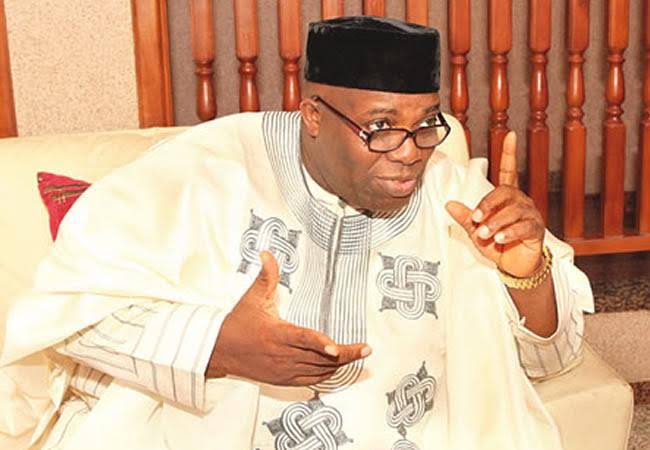
By Chuks Nwachuku
FOR THE RECORD
I feel I should state more comprehensively my position on the 25% of FCT controversy.
RELEVANT PROVISIONS OF THE CONSTITUTION
Section 134
134. (1) A candidate for an election to the office of President shall be deemed to have be been duly elected, where, there being only two candidates for the election –
(a) he has the majority of votes cast at the election; and
(b) he has not less than one-quarter of the votes cast at the election in each of at least two-thirds of all the States in the Federation and the Federal Capital Territory, Abuja.
(2) A candidate for an election to the office of President shall be deemed to have been duly elected where, there being more than two candidates for the election-
(a) he has the highest number of votes cast at the election; and
(b) he has not less than one-quarter of the votes cast at the election each of at least two-thirds of all the States in the Federation and the Federal Capital Territory, Abuja.
(3) In a default of a candidate duly elected in accordance with subsection (2) of this section their shall be a second election in accordance with subsection (4) of this section at which the only candidate shall be –
(a) the candidate who scored the highest number of votes at any election held in accordance with the said subsection (2) of this section; and
(b) one among the remaining candidates who has a majority of votes in the highest number of States, so however that where there are more than one candidate with majority of votes in the highest number of States, the candidate among them with the highest total of votes cast at the election shall be the second candidate for the election.
(4) In default of a candidate duly elected under the foregoing subsections, the Independent National Electoral Commission shall within seven days of the result of the election held under the said subsections, arrange for an election between the two candidates and a candidate at such election shall be deemed elected to the office of President if –
(a) he has a majority of votes cast at the election; and
(b) he has not less than one-quarter of the votes cast at the election in each of at least two-thirds of all the States in the Federation and the Federal Capital Territory, Abuja
(5) In default of a candidate duly elected under subsection (4) of this section, the Independent National Electoral Commission shall, within seven days of the result of the election held under the aforesaid subsection (4), arrange for another election between the two candidates to which the subsection relates and a candidate at such election shall be deemed to have been duly elected to the office of President, if he has a majority of the votes cast at the election.
Section 2
2. (1) Nigeria is one indivisible and indissoluble sovereign state to be known by the name of the Federal Republic of Nigeria.
(2) Nigeria shall be a Federation consisting of States and a Federal Capital Territory.
Section 299
299. The provisions of this Constitution shall apply to the Federal Capital Territory, Abuja as if it were one of the States of the Federation; and accordingly –
(a) all the legislative powers, the executive powers and the judicial powers vested in the House of Assembly, the Governor of a State and in the courts of a State shall, respectively, vest in the National Assembly, the President of the Federation and in the courts which by virtue of the foregoing provisions are courts established for the Federal Capital Territory, Abuja;
(b) all the powers referred to in paragraph (a) of this section shall be exercised in accordance with the provisions of this Constitution; and
(c) the provisions of this Constitution pertaining to the matters aforesaid shall be read with such modifications and adaptations as may be reasonably necessary to bring them into conformity with the provisions of this section.
300. For the purposes of Chapter V of this Constitution, the Federal Capital Territory, Abuja shall constitute one Senatorial district and as many Federal constituencies as it is entitled to under section 49 of this Constitution.
301. Without prejudice to the generality of the provisions of section 299 of this Constitution, in its application to the Federal Capital Territory, Abuja, this Constitution shall be construed as if-
(a) references to the Governor, Deputy Governor and the executive council of a State (howsoever called) were references to the President, Vice-President and the executive council of the Federation (howsoever called) respectively;
(b) references to the Chief Judge and Judges of the High Court of a State were references to the Chief Judge and Judges of the High Court, which is established for the Federal Capital Territory, Abuja by the provisions of this Constitution; and
(c) references to persons, offices and authorities of a State were references to the persons, offices and authorities of the Federation with like status, designations and powers, respectively; and in particular, as if references to the Attorney-General, Commissioners and the Auditor-General for a State were references to the Attorney-General, Ministers and the Auditor-General of the Federation with like status, designations and powers.
One rule of constitutional interpretation is that the Constitution must be read as a whole, that is, as a single document as opposed to a bundle of disjointed pieces. The meaning is that the interpretation of any part of the Constitution must be reconciled or must not be in conflict with other parts.
A careful reading of section 134 shows clearly that there is a downward graduation in emphasis in requirements for winning the election or participating in the second and third ballot from (1) States AND FCT, to (2) States (without the FCT), and then to (3) no States – just the votes without regard to States or the FCT.
In subsection (2)(b) that addresses winning on the first ballot in the case of two or more candidates, the winning candidate must in addition to winning majority votes also win 25% of votes in the States and the FCT. To understand whether or not what the Constitution means is 25% in all the States plus 25% in the FCT, we move further to the other parts of that section. Subsection (3) addresses a situation where the requirement of 25% in the States and the FCT is not met. Subsection (3)(b) which talks about which of the other candidates is qualifed to participate with the candidate with the majority of the votes, in the second ballot makes an interesting provision. It says that it is the candidate who won majority of the votes in the highest number of STATES. The FCT does not feature in this requirement. According to the rules of constitutional and statutory construction, this is internal evidence that the Constitution was deliberate in specifically mentioning the FCT in subsection (2)(b). It is also evidence that the Constitution intends that the distinction between the States and the FCT as made clear in section 2(2) should be sustained in section 134(2)(b).
We can recall section 2(2):
(2) Nigeria shall be a Federation consisting of States and a Federal Capital Territory.
This provision is clear that the FCT is not a State and that Nigeria cannot be reckoned as complete without the FCT. No one can say that this provision does not by the use of the conjunction “and” state expressly that the States and the FCT are two different components or entities; no one can say that the States include the FCT or that the FCT should be regarded as a State. It is the same expression that is used in section 134(2)(b). In constitutional construction, similar expressions are construed the same way. This is particularly so when section 134(3)(b) with its exclusion of the FCT has shown clearly that the use of the expression “States and the Federal Capital Territory” in (2)(b) is deliberate showing that the Constitution knows when to make winning in the FCT a requirement and when not to do so and that if a candidate wishes to “win” Nigeria on the first ballot, they must win 25% votes in both the States of Nigeria and the FCT
The fact that the Constitution graduates its requirements in terms of popularity and acceptance downwards from States AND the FCT, to States only, and then to just simple majority vote, is seen at section 134(5) which States that where the second ballot does not produce a winner as required under subsection (2)(b) (25% in ⅔ of the States and the FCT) then a third election shall be held and decided on simple majority basis without regard to national spread in terms of the number of States or the FCT.
Let me address at this point, the rather fanciful argument that the Constitution could not have intended to give the FCT a veto over other States with the telling effect that a candidate that secures 25% in each of the 36 States of the country cannot be declared President except they secure 25% of the votes of the FCT. We can see that subsections (3), (4) and (5) of section 134 have already addressed that point. Such a candidate has the chance to participate in a second ballot, and where he still does not meet the mark, he has the option of a third ballot where both the States and FCT marks have been removed to lower the standard to single majority vote. No veto is accorded the FCT. It is only a matter of what mark a candidate has to meet to secure a First Class win of a presidential election. Tinubu did not meet the mark for a First Class win. The Constitution expects him to take a resit examination.
The next provision to be examined is one which has excited proponents of the view that the FCT should be taken at just another State to make the States of the country 37 in number contrary to the express words of section 2(2) of the Constitution cited above to the effect that Nigeria consists of States and the FCT. We are talking of section 299 of the Constitution.
Recall Section 299
Let us recall the general provisions of the section, which is all that the proponents of the view that has emboldened INEC to declare Tinubu winner of the Presidential election on the first ballot when he did not secure 25% of the votes cast in the FCT limit themselves to – most unfortunately:
“299. The provisions of this Constitution shall apply to the Federal Capital Territory, Abuja as if it were one of the States of the Federation; and accordingly -”
The argument is that these provisions equate the FCT to a State. The simple answer to that is that since the Constitution sets a mark of 25% of votes cast to establish sufficient popularity or acceptability within a State, then in like manner to establish popularity and acceptability within the FCT, a candidate most also win 25% of the votes cast in the FCT and therefore where as in section 134(2)(b) a candidate is required to demonstrate popularity and acceptability within ⅔ of the States and the FCT, the candidate must win 25% of the FCT to meet that requirement. It seems that the mention of ⅔ seems to take attention away momentarily from the object of the provision, which is “States and the Federal Capital Territory”. Without the ⅔ , no one would doubt that if the Constitution requires that a particular situation should exist in the “States and the FCT” that situation could not be said to be in existence if it did not exist in the FCT, even based upon the proposition that the FCT is to be equated to a State.
A cursory look down the rest of the provisions of section 299 shows that it continues with the idea that some situations that exist in the States should be replicated as situation allows in the FCT. So, if our focus is on the requirement of 25% of votes cast, then the principle gleaned from these provisions is that if that is required in the States, then it is required in the FCT. Therefore, where, as in section 134(2)(b) there is express mention of the FCT then the 25% that is required in each State in order for that State to be among the required ⅔ must also exist in the FCT which is already mentioned by name. No State is mentioned by name in section 134(2)(b). No one doubts that if any State is specifically mentioned by name as already fallen into the territories to be taken into account, then that State must be included in the States won in order to win on the first ballot.
Section 300 seals the argument that section 299 merely prescribes that what exists in the States should exist in the FCT with particularity to those administrative institutions mentioned therein. The section refers with particularity and specificity to Chapter V of the Constitution which creates the administrative structures for each State to say that the whole of the FCT shall constitute one Senatorial Zone. This provision provides clear evidence that despite its apparent general nature, the body of section 299 already shows the administrative institutions in the States that it intends should be replicated in the FCT and that its generality should be interpreted ejusdem generis to restrict it to those institutions and any other that is similar. As a general provision therefore, section 299 does not address itself to the situation provided for in section 134 of the Constitution. Section 300 shows that if the Constitution ever contemplated that the FCT should be considered the 37th State with reference to the provisions of section 134, it would have stated so expressly.
There really should be no controversy regarding the effect of section 299 on section 134. Section 299 reinforces that the FCT is not a State. That is the reason for the need to import some features of the administration of States into it. It is absurd to say that a Territory that belongs to and is administered by the Federal Government is at the same time a State in a Federation where both power and territory are shared between the Federal Government and the States. I wish we could stop making such arguments.
The above therefore is what I consider to be the honest interpretation of section 134(2)(b). The requirement of 25% of the votes in the States and the FCT are not met if the candidates does not win 25% of the votes cast in the FCT.
Chuks Nwachuku can be reached at [email protected]






